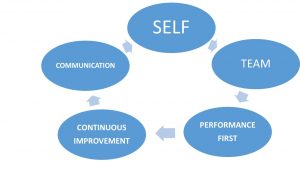Price Transparency Regulation and the Regulated Solicitor
Whilst only in England and Wales for now, The Law Society of Scotland are currently consulting on price transparency and so this is relevant to solicitors UK wide.
Why and what is the change?
In 2016 the Competitions and Markets Authority (CMA) found that there was not enough information available on price transparency, quality and service to help those who needed legal support to choose the best option. Since December 2018, practices in England and Wales are now required to publish the true cost of services (or average costs or range of costs), the basis of charges, key stages of the process and probable timeframes, any likely disbursements (and if they include VAT) and the experience and qualifications of anyone carrying out the work.
Under the new rules, costs information must include the total or average cost, the “basis for your charges, including hourly rates or fixed fees”, and the “experience and qualifications of anyone carrying out the work, and of their supervisors”.
Disbursements must be included, including whether they were subject to VAT, details of the services, such as “key stages of the matter and likely timescales for each stage”, and, where conditional fees or damages-based agreements were offered, the “circumstances in which clients may have to make any payments themselves for your services”.
All costs information must be “clear and accessible” and featured in a “prominent place” on websites.
Firms must also publish details of their complaints handling procedures, including how to complain to the Legal Ombudsman and the SRA, and display the firm’s SRA number and digital badge in a “prominent place”.
How will it be monitored?
The SRA had stated that they will give firms time to acquaint themselves with new price transparency rules- but it will be proactive about those still refusing to comply. The regulator has stated that they will not be relying on reports of on-compliance and instead will perform thematic reviews to check for itself if firms are publishing the right information.
Today however a statement has been released that The Solicitors Regulation Authority (SRA) is to carry out randomised “web sweeps” of around 500 law firms over the next few months to check they are publishing fees for common consumer transactions.
Paul Philip, chief executive of the SRA, said the regulator would take a “proportionate approach” to enforcement.
“It’s a bit like people who don’t fill in requests for information. We’re saying this is not a hugely important thing, but you’re obliged to do it, so you’re forcing us into taking disproportionate action when you should just comply and move forward.
“We come up against this type of thing time and time again. I have no doubt we will end up with a rump of people who end up in the corner saying they are just not doing it.
“At that point in time we will decide what to do. We will address it in a proportionate way but in an increasingly forceful way to ensure compliance.”
What do firms think?
The SRA say that this is not about giving firms a hard time or adding more regulatory hoops to jump through. The aim is that by providing clear pricing details, any misunderstandings later in a transaction will be avoided as a result of transparent information being provided from the onset. They believe these regulations will give more people access to the legal system.
The other side of the story is that these are in-fact adding a burden onto already stretched firms. Some even say that this will add more confusion than clarity for clients.

Many firms have spoken out about the changes. Statements include some saying that the profession is facing an unprecedented level of price pressure. Some think fee information on a website will confuse clients further, saying it is much better to call and clarify what charges apply to their circumstances and find an advisor that they like. Researches have found that nearly a third of solicitors in England and Wales are prepared to defy regulations by refusing to publish clear fee information to prospective clients.
Is the regulated solicitor now constantly having to add heavily to their overheads, time away from fee earning and can they act in the best way they want to for their own clients?
Do you wonder what is coming next?
Emma O’Day, Marketing and Communications Manager at The Cashroom Ltd.

 It’s that time of year again where the spring flowers are blooming, the spring lambs are being born and (for some) the spring clean is being negotiated. You may not have considered a spring clean of your IT security knowledge or corporate network security, so we have put together a few quick tips to help you remain safe online and tidy up your corporate accesses.
It’s that time of year again where the spring flowers are blooming, the spring lambs are being born and (for some) the spring clean is being negotiated. You may not have considered a spring clean of your IT security knowledge or corporate network security, so we have put together a few quick tips to help you remain safe online and tidy up your corporate accesses. ent numbers etc. Don’t be afraid to double check any changes with the email sender but call them at a number you know exists or begin a new email chain from scratch. Don’t click reply or use the details in the suspicious email – you may end up “verifying” the change of details with the fraudster!
ent numbers etc. Don’t be afraid to double check any changes with the email sender but call them at a number you know exists or begin a new email chain from scratch. Don’t click reply or use the details in the suspicious email – you may end up “verifying” the change of details with the fraudster! You need several key attributes to get the most out of a networking event like the Legal Sector Advisors and Suppliers conference. I spent a happy and very productive two days in September with the UK’s leading legal sector suppliers in the gorgeous setting of Ardencote Manor. The days were happy and productive because I was ready with networking powers primed and ready. There’s the obvious requirement for a cast iron constitution. The ability to remain coherent and to retain information after being plied with intoxicating slides and copious quantities of strong information.
You need several key attributes to get the most out of a networking event like the Legal Sector Advisors and Suppliers conference. I spent a happy and very productive two days in September with the UK’s leading legal sector suppliers in the gorgeous setting of Ardencote Manor. The days were happy and productive because I was ready with networking powers primed and ready. There’s the obvious requirement for a cast iron constitution. The ability to remain coherent and to retain information after being plied with intoxicating slides and copious quantities of strong information. You have been asked to do a piece of work, diligently send out your standard letter of engagement, when the client calls uttering the dreaded words…‘the fee is a bit higher than I was expecting – if you can get that down a bit, I’d be happy for you to proceed with the work’. If this situation fills you with dread, fear not! With a little thought and a proper ‘toolkit’, you can confidently go into a conversation with your client on the pricing topic in the future.
You have been asked to do a piece of work, diligently send out your standard letter of engagement, when the client calls uttering the dreaded words…‘the fee is a bit higher than I was expecting – if you can get that down a bit, I’d be happy for you to proceed with the work’. If this situation fills you with dread, fear not! With a little thought and a proper ‘toolkit’, you can confidently go into a conversation with your client on the pricing topic in the future.

 From a business perspective if nothing else, maybe we can all work in a more collegiate, helpful and positive way. I’m going to try to do that, and to live life to the full. Dad taught me that before he died, and the full truth of his lessons only now fully hits home.
From a business perspective if nothing else, maybe we can all work in a more collegiate, helpful and positive way. I’m going to try to do that, and to live life to the full. Dad taught me that before he died, and the full truth of his lessons only now fully hits home. For those who don’t know my background, I trained as a solicitor at Drummond Miller in Edinburgh and Glasgow. I remained there for about a year post-qualification, th
For those who don’t know my background, I trained as a solicitor at Drummond Miller in Edinburgh and Glasgow. I remained there for about a year post-qualification, th



 When I was asked by our Marketing and Communications Manager to write a Blog on ‘A Day in the Life of a Business Development Manager’, it made me realise just how different each day actually is for me, and the vastly different tasks I undertake.
When I was asked by our Marketing and Communications Manager to write a Blog on ‘A Day in the Life of a Business Development Manager’, it made me realise just how different each day actually is for me, and the vastly different tasks I undertake.